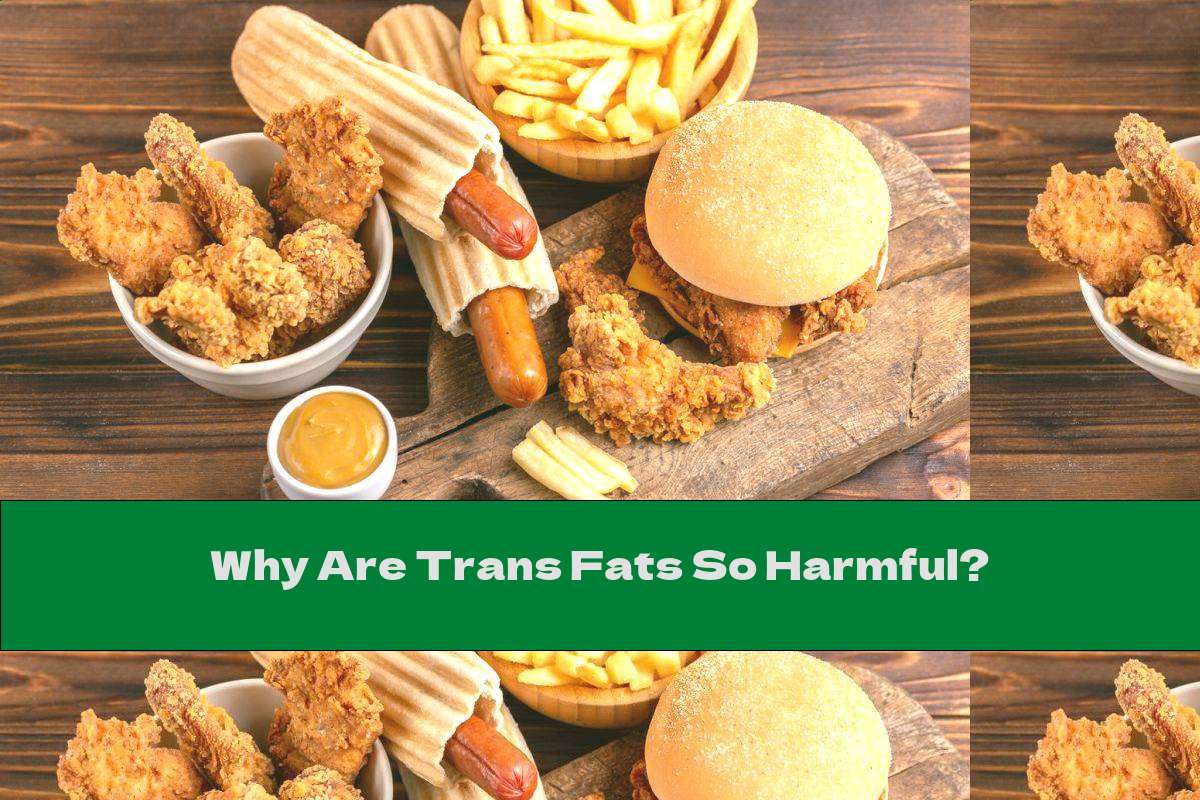Why Are Trans Fats So Harmful?
 Author: Mark Velov
Time for reading: ~1
minutes
Last Updated:
August 08, 2022
Author: Mark Velov
Time for reading: ~1
minutes
Last Updated:
August 08, 2022

A balanced diet and reduced intake of saturated and trans fats reduces the risk of cardiovascular disease
Saturated fats have long been known to increase total and LDL cholesterol and increase the risk of heart disease. Because saturated fats were first found in animal products, many people believe that eating low-fat dairy products and pure (lean) meat reduces the risk of heart disease. But in vegetable oils that are processed to solid fats (such as corn oil to margarine), the level of saturated fat rises dramatically, as do the levels of trans fat .
A recent study found that trans fatty acids raise LDL cholesterol levels just as much as saturated fats. Therefore, in order to reduce the risk of cardiovascular disease, the intake of both animal fats and hydrogenated vegetable fats should be reduced.
Due to the lower price, many restaurants use vegetable fats for frying. Foods prepared in this way are extremely rich in trans fats. Such foods should also be limited.
According to data collected by the FDA, approximately 50% of the trans fats we consume come from foods such as waffles, crackers, chips, croissants, saltines and dishes made with hydrogenated vegetable fats . Only 21% of these fats come from animal products. Unfortunately, there is no legislation restricting restaurants and fast food restaurants from using hydrogenated vegetable fats. In some countries, restaurants are required to notify their customers when they use such cooking products.
The greatest responsibility, however, remains ours. Experts advise to avoid eating foods that are potential sources of trans fats. Homemade cakes, croissants and crackers are the best choice. Lifestyle is of great importance to our health.
Total fat intake should not exceed 20% of total energy imports. Saturated fats in the diet should not exceed 7% of total energy intake. Dietary cholesterol should not be more than 300 mg per day, and trans fats should be kept to a minimum. Margarine and butter should be replaced with olive or rapeseed oil. Following such a diet maintains normal cholesterol levels and greatly reduces the risk of cardiovascular disease.
Related Articles
- Nutritional Benefits of Cobb Salad: Protein, Healthy Fats, and More
- The Nutritional Value of Potato Chips: A Guide to Calories, Fats, and More
- The Nutritional Value of Potato Chips: Understanding Calories, Fats, and Sodium
- Nutritional Benefits of Mallard: High Protein, Iron, Healthy Fats, and More
- Nutritional Benefits of Coconut Pulp Flour: Fiber, Healthy Fats, and More
Top Nutrition Articles Today
- . Understanding Food Labels: A Guide to Reading and Interpreti...
- . The Ultimate Guide to Food Combining in Nutrition | Benefits...
- . Chicory: 15 Health Benefits, How To Drink, Contraindications...
- . The Science of Raising Agents in Baking: Chemical and Functi...
- . The Role of Hydrochloric Acid in Digestion: Importance, Symp...
- . The Benefits of Myra E: A Powerful Vitamin E Supplement
- . Hydrochloric Acid in Digestion: Importance, Symptoms, and Na...
- . The Role of Water in Nutrition: Importance of Hydration and...
- . How To Cook Beets So That They Do Not Lose Color
- . List of Foods that Contain Carrageenan: A Guide to Avoiding...